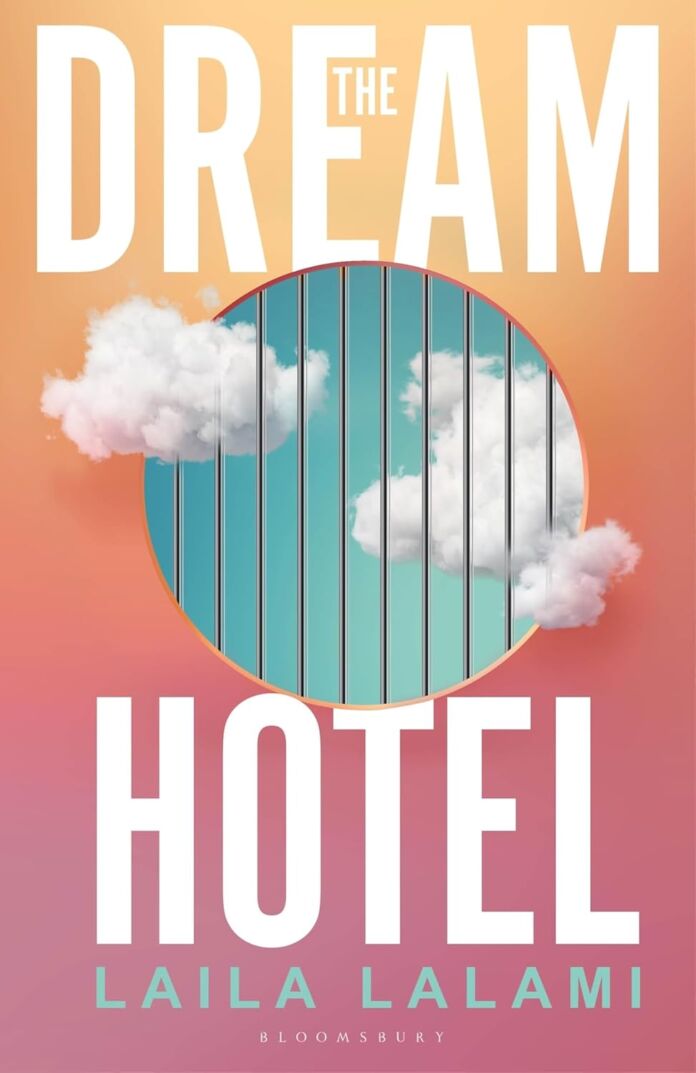In her latest novel The Dream Hotel, Pulitzer Prize finalist Laila Lalami crafts a chilling vision of a surveillance state where even our dreams are monitored and commodified. This gripping speculative fiction follows Sara Hussein, a museum archivist detained by authorities who claim her dreams indicate she will commit a violent crime. What begins as a 21-day “retention” transforms into a nearly year-long ordeal that exposes the human cost of unchecked technological control.
Writing Style and Narrative Structure
Lalami’s prose is elegantly restrained yet charged with quiet intensity. The narrative alternates between Sara’s present-day experiences at Madison retention facility and flashbacks that gradually reveal how surveillance technology has infiltrated every aspect of modern life. Through this structure, Lalami masterfully builds tension while exploring deeper themes about privacy, freedom, and resistance.
The author’s background in post-colonial studies enriches her examination of power structures and systematic oppression. Her keen eye for detail brings the sterile world of Madison to vivid life—from the “chrome-plated lights” dating back to its days as a public school to the “blank purity” of its whitewashed walls.
Character Development and Relationships
Sara emerges as a complex protagonist whose initial compliance gradually transforms into principled resistance. Her relationships with fellow retainees—particularly her close friendship with insurance adjuster Toya Jones—form the emotional heart of the novel. Through their solidarity, Lalami illustrates how human connection can flourish even under extreme surveillance and control.
The supporting characters are equally well-drawn, from the enigmatic Senior Attendant Hinton to Julie Renstrom/Eisley Richardson, whose true identity becomes a crucial plot point. Even minor characters feel fully realized, contributing to the novel’s examination of how people adapt to—or resist—systematic oppression.
Key Themes
Dreams and Surveillance
The novel’s central premise—that dreams can be monitored and used as evidence of criminal intent—serves as a powerful metaphor for the erosion of privacy in our digital age. Lalami explores how surveillance capitalism commodifies our most intimate thoughts and experiences.
Motherhood and Identity
Sara’s separation from her twin toddlers provides emotional stakes while raising questions about maternal identity under surveillance. Her struggle to maintain her sense of self while being labeled a potential threat highlights the dehumanizing effects of algorithmic prediction.
Resistance and Solidarity
The novel’s latter half focuses on collective resistance through Sara’s organization of a labor strike. This subplot effectively demonstrates how seemingly powerless individuals can challenge systemic oppression through unity and strategic action.
Critical Analysis
While the novel’s premise might initially seem far-fetched, Lalami grounds her speculation in existing technologies and social trends. The Dreamsaver device and OmniCloud database feel like natural extensions of current surveillance capitalism. Her thorough world-building makes the story’s darker implications all the more unsettling.
Areas for Improvement
The novel occasionally gets bogged down in administrative details of the retention facility. While these details contribute to the authenticity of the setting, they sometimes slow the narrative momentum. Additionally, some readers might find the ending’s blend of personal triumph and systemic uncertainty unsatisfying, though this ambiguity appears intentional.
Impact and Relevance
The Dream Hotel by Laila Lalami joins works like Dave Eggers’ The Circle and Shoshana Zuboff’s The Age of Surveillance Capitalism in examining how technology reshapes privacy and human autonomy. However, Lalami’s focus on dreams adds a unique psychological dimension while her emphasis on collective resistance offers hope amid dystopian circumstances.
Comparable Works
Readers who enjoy The Dream Hotel might also appreciate:
- The Power by Naomi Alderman
- An Excess Male by Maggie Shen King
- The School for Good Mothers by Jessamine Chan
- Klara and the Sun by Kazuo Ishiguro
- The Handmaid’s Tale by Margaret Atwood
Final Verdict
The Dream Hotel by Laila Lalami is a masterful blend of psychological thriller and social commentary that will resonate with readers concerned about surveillance technology’s growing reach. While some plot elements could be tighter, Lalami’s elegant prose and nuanced character development make this a compelling addition to contemporary speculative fiction.
Strengths
- Elegant, precise prose
- Complex, well-developed characters
- Timely social commentary
- Nuanced exploration of resistance and solidarity
Areas for Development
- Occasional pacing issues
- Some administrative details feel excessive
- Ending might be too ambiguous for some readers
The Dream Hotel confirms Laila Lalami’s place as one of our most thoughtful contemporary novelists. Her ability to weave timely social commentary into a deeply human story makes this novel both important and impossible to put down.





